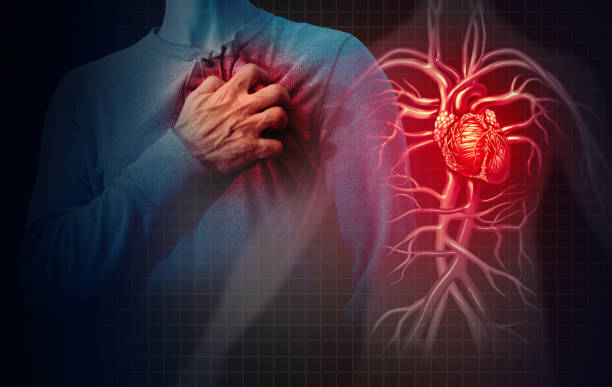Heart attack and angina, a crushing form of chest pain produced by the reduced blood supply to the heart, may be mistaken for symptoms of gastroesophageal reflux disease (GERD) and other gastrointestinal issues such as ulcers, muscular spasms in the esophagus and pancreatitis. The pain of angina has been compared to that of having "an elephant on your chest" by some sufferers.
According to the American College of Gastroenterology, around 23 percent of the population in the United States has non-cardiac chest discomfort at some point in their lives. This equates to as many as 70 million individuals. NCCP is almost often brought on by gastroesophageal reflux disease (GERD), characterized by a persistent backflow of acid from the stomach into the esophagus. The inability of nerves in the stomach and heart to provide a clear signal to the brain about the location of the source of pain is one factor contributing to the ambiguity of the symptoms.
Stephen Kopecky stated that the nerves in the chest are not as particular as those in other body parts, such as the hand. Dr. Kopecky highlighted that if someone were to have an injury to their little finger due to being struck with a hammer, the individual would be able to determine which finger had been harmed. In contrast, a person injured in heart, pancreas, lungs, esophagus, or stomach may only feel the pain emanating from the chest in each scenario.
According to Dr. Kopecky, this creates a significant obstacle in the diagnostic process. "And roughly half of the individuals who suffer a heart attack have just mild symptoms (or no symptoms at all) and do not seek medical assistance," the study said. There are a few techniques to distinguish between heart and stomach conditions, even though different people may suffer different symptoms based on the state of their stomach or heart.
How To Tell the Difference
If the issue is connected to your heart, you may feel a tightness, burning, or pressure in your chest. These sensations are all rather common. This discomfort is often made worse by strenuous physical activity or intense mental stress. It may spread to the back, the neck, the jaw, or the arms, and it is often related to the following conditions:
- Sweating
- Difficulty breathing
- Dizziness
- Nausea
- An irregular pulse
If you have risk factors such as diabetes, smoking, high cholesterol, obesity or a family history of heart disease, it is more probable that the problem is due to your heart rather than anything else. Additionally, age is a factor to consider: Those over the age of 45 in males and the age of 55 in women are more likely to suffer from heart disease.

Time of Pain as a Factor
According to Myrna Alexander Nickens, duration is another aspect to consider. According to Dr. Nickens, angina attacks often last between five and ten minutes before passing. An episode of a heart attack will last longer. Additionally, the symptoms of reflux might last for a few hours.
Pain After Eating Some Foods
The pain is often more severe if the issue is connected to the digestive system, such as gastroesophageal reflux disease (GERD). It may be brought on by eating a meal high in fat or spicy and alleviated by shifting position. When you lie down or bend over, the discomfort will become much worse. You can get a sour taste in your mouth if acid from your stomach makes its way into your esophagus.
However, medical professionals emphasize that there are always exceptions to the rule. Some patients experience angina after eating a large meal, according to Julius M. Gardin. This is because blood flow is diverted away from the heart and toward the digestive system. People who are suffering from a heart attack and incorrectly think that they are feeling heartburn may feel better after taking an antacid owing to the placebo effect, according to Dr. Gardin.
Symptoms in Women and the Elderly
According to Dr. Alexander Nickens, atypical symptoms of a heart attack are more common among senior individuals, women, and younger males than in older people and older women. When a woman is experiencing a heart attack, she may have feelings of nausea, weariness, and overall tiredness all over her body. People who are elderly often experience feelings of dizziness, shortness of breath, and overall unwellness.





